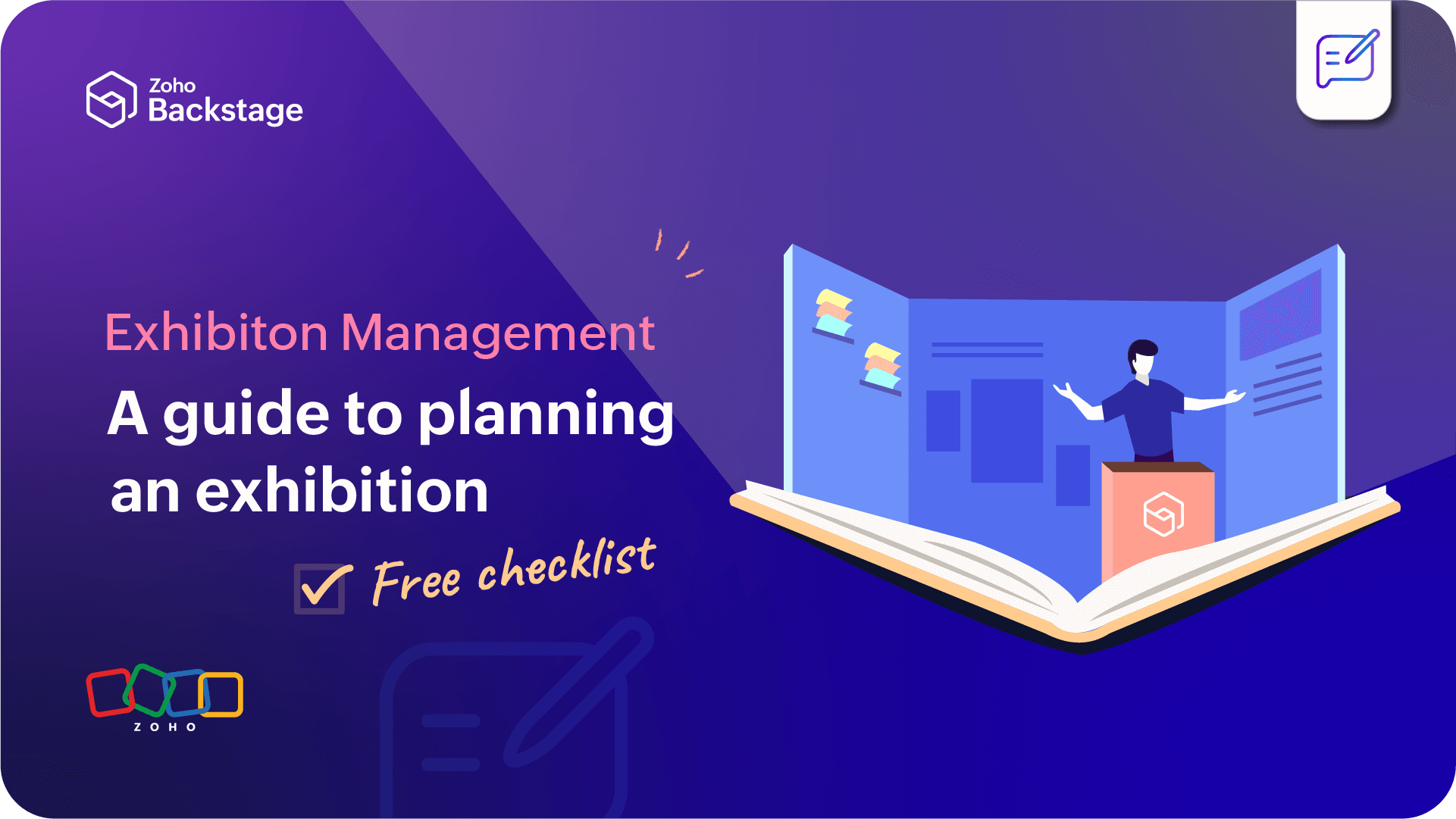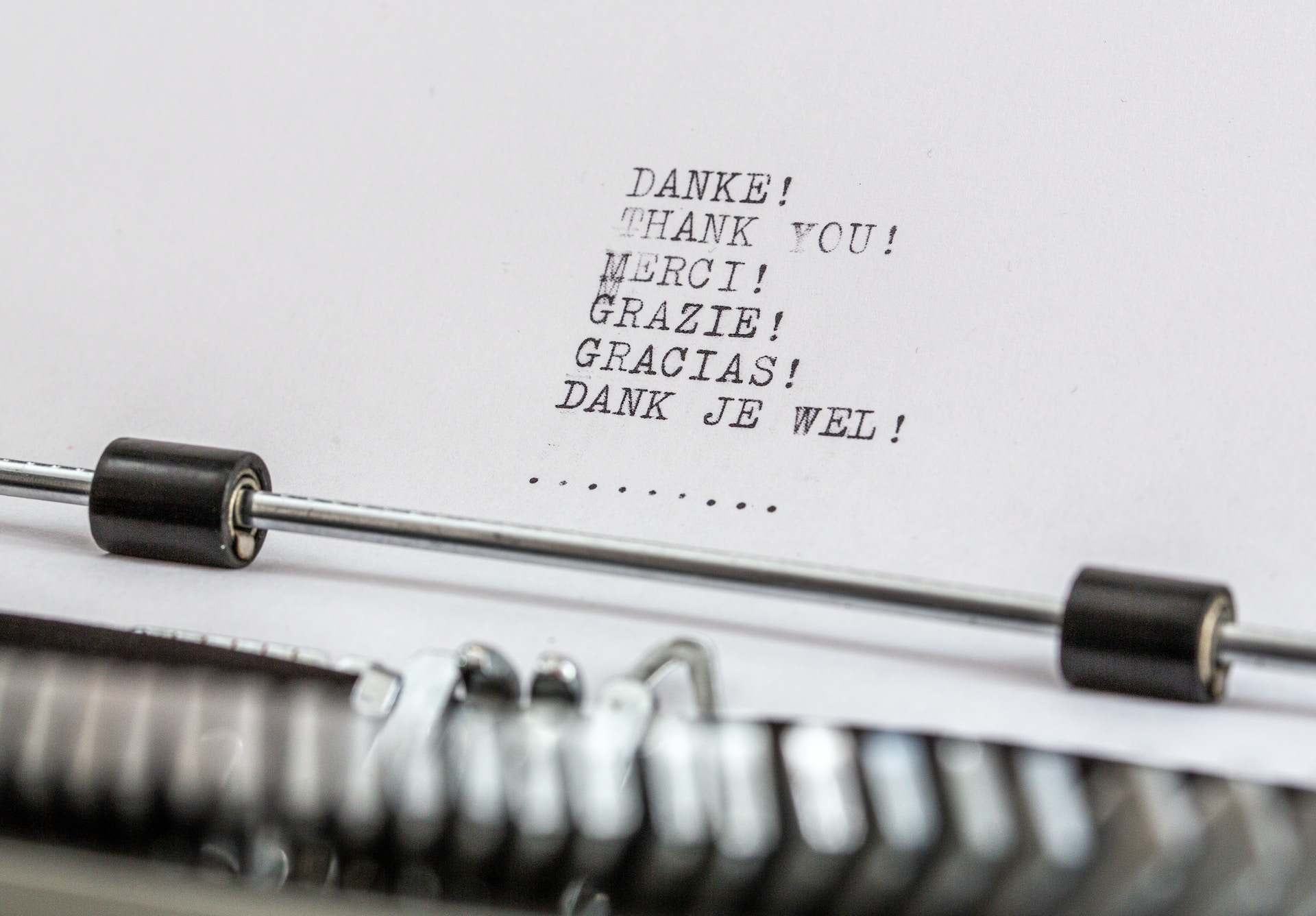- HOME
- Management
- 10 strategies to reduce event planning stress and boost productivity
10 strategies to reduce event planning stress and boost productivity
- Last Updated : August 18, 2023
- 8.1K Views
- 10 Min Read

Event planning has been on the list of the top 10 most stressful jobs in the world almost every year for the last decade or so. Event coordinators have a stress score of 51.15%, which puts them almost neck-to-neck with law enforcement officers (51.68%) and airline pilots (60.54%). The same survey also says they encounter more stress daily than senior corporate executives, public relations executives, and cab drivers—jobs we’ve always shelved into the high-stress category.
Why is event planning stressful?
Event management is undoubtedly a high-pressure job—the competition, travel, and the environment of chaos all contribute to it. Some of the factors that make event planning a demanding (and, in turn, stressful) job are:
Unrealistic expectations: In every business, there will be clients who’ll want the unreasonable. Even more so in the event industry where they expect you to perform magic—pulling off an exceptional event that shows off-the-charts ROI with a budget that wouldn’t cover half the costs.
Tight deadlines: More and more event planners are promising to get events ready in a really short period to hold on to impatient clients. This means impossible work hours, a skewed work-life balance, and so much pressure to deliver.
Physical demands: This is no nine-to-five job. In the days before the event, you’ll probably have to put in a 60-hour week. You might spend your days at the venue looking over things and cut down on sleep to do your budgeting. All of this is sure to take a toll on your health.
Lack of control: You may have spent days if not weeks assessing the risk factors and preparing contingency plans for all kinds of emergencies, and yet on the day of the event, you never know for sure what will happen. There’s always a chance that someone might mess up and throw the entire schedule off. Then there are the small fires you routinely have to put out. From speakers to sponsors to vendors, you’re responsible for all their actions.
Constant interruptions: This might not seem like a big deal but being frequently interrupted can be very damaging to your productivity. Having to switch between tasks often while staying on top of all the emails and other communication is also challenging. And for people who can get their best work done only when they are in the zone, the repeated distractions can be especially taxing as they have to put in a lot of effort to get their focus back again.
Subscribe to The Green Room
Sign up here and get all the most relevant MICE industry content delivered right to your inbox once a month.
By submitting this form, you agree to the processing of personal data according to our Privacy policy.
How do you know you’re stressed?
Identifying stress can be a little tricky because not everyone has the same triggers or reactions to it. Some people might get a migraine while others might be anxious all the time. And then there are the people who thrive on pressure—for them, stress is no big deal. Usually, stress manifests physically, mentally, and emotionally. Remember those mid-afternoon crying spells? You were probably going through a stressful period then.
Here, we’ve listed some of the more common symptoms of stress. They include:
Low energy and tiredness, even after a full eight or more hours of sleep
Headaches or migraines
Frequent case of flu and cold due to low immunity
Constant worry about everything and anything
Lack of focus at work
Chronic pain in some part of the body
Insomnia
Digestive and gastrointestinal issues
Changes in appetite and sleep patterns
As symptoms of stress can be similar to other medical conditions, it’s best to consult with a doctor or medical professional to get a proper diagnosis, especially if you’re worried about something.
How can you manage event planning stress?
We all know stress is bad and that, in the long-term, it can lead to a lot of complicated medical conditions like high blood pressure and heart problems, to name a few. Recent studies also show stress to be contagious, very like the common cold or flu, which you can “catch” from someone else. If you’re stressed, chances are good that you’re also passing it on to your entire team. Not only will your health and productivity go downhill, but you’ll also be dragging everyone else down.
If you want to get the work done, cut down on your stress. Pushing yourself might seem like the brave and responsible thing to do, but it’s not right and you’ll just end up harming yourself. If you’re stressed, do something to get it under control. Moreover, 10 years down the line, you’ll be glad for all the changes you’re making now to accommodate your health.
Here are some ways you can relieve event planning stress and become more efficient when organizing your event.
Make technology your friend
Event planners have a lot of technology at their disposal, the best of which is event management software. End-to-end event plannning software can help in every stage of the event planning—you can build your event website, set up registrations, track sales, and automate tasks. You can complement it with CRM software or even website analytics software to better measure your ROI.
When you make the most of available technology, you give yourself and your team some much-needed space to concentrate on the tasks that need the “human” touch. By constantly evaluating which tasks are taking up most of your time and whether technology can benefit you there, you also cut down on your workload and give yourself some headspace.
Use checklists
Checklists are one of the most underrated strategies when it comes to reducing stress. When used right, they help you get organized and stay on track. By making a list of all your recurring tasks, you don’t have to worry about forgetting important steps or details. Have a list for everything from the points you’ve got to keep in mind when building an event’s website to the risk factors you have to check for in a potential venue.
Another benefit of checklists is the feeling of accomplishment you get every time you cross an item off the list. Now, if you’ve got a big task at hand, you can break it into smaller chunks and add them to your list. Whenever you complete a task from the list and acknowledge it, a shot of dopamine will be released into your brain. As dopamine is connected to the feel-good emotions like pleasure and motivation, it’ll help you continue with the task. You won’t need any external motivation.
Work with reliable people
It takes an army and then some to host a successful event. So be sure that you’re able to trust the people who work for you. Work with vendors who are dependable and speakers who are professional. Work with staff that can carry their own weight, event volunteers who complement your team, and sponsors who are supportive. All of these people should help you with the event and not create a new set of problems that you have to deal with on top of all your other work.
Late shipments, inefficient staff members, and irritable sponsors are problems you can do without. Get to know everyone who’s working with you and build a lasting relationship with them so they stay with you for longer than an event and you don’t have to search for new people every time.
Manage your time wisely
In a recent survey on stress at the workplace, almost 30% of the respondents stated deadlines as a major cause. However, by maximizing your use of time, you can prioritize and schedule your tasks to manage deadlines efficiently. You can also sandwich a difficult task between two easy ones so you have enough time to recuperate after stressful periods.
When you think about managing time, completing tasks should not be your only goal. You should also focus on building time for activities other than work. Include vacations in your schedule, and anytime you feel stressed, take a break from work.
Take care of your team
Like I said at the very beginning of this post, stress is contagious. Your team can “catch” it from you, and, at the same time, you can also get it from them. So look out for your staff. Some ways you can make work-life pleasant for them include:
Encouraging wellness at the workplace
Letting them work to their strengths
Recognizing and rewarding hard work
Avoiding micromanagement
Giving appropriate feedback and being kind when doing it
Making team activities a priority
Providing job security and other incentives like medical insurance, free gym memberships, and more.
A satisfied team will help you host a successful event. By supporting them, you ensure that they work efficiently and, more importantly, they won’t quit on you. And, of course, happiness is also contagious. So their positiveness will, in turn, improve your mood. Amazing, right?
Prioritize your health
Meditation, healthy eating, exercise—all of this will go a long way in reducing your stress levels. To live a healthy and stress-free life, you’ve got to take some time for yourself. Look after both your physical and, most importantly, your mental health. Both exercise and meditation positively affect stress, and, ideally, you should schedule some time for both every day. Other habits that a lot of people swear by include journaling, having an end of the day ritual, deep breathing, and music.
You can experiment with different things to find out what relaxes you the most. Sometimes something as simple as reading a book for 30 minutes a day or lighting a candle can help you get calm. All these tips help you focus on something other than your stress, and this in turn will actually increase your productivity.
Understand that you are human
We are, all of us, guilty of thinking we’re superhumans. When it comes to work, nothing is too much or too difficult, and when a client comes with an impossible demand, it’s never acceptable to say no. Instead, we push ourselves to the absolute limit to get the work done, even at the cost of our health, family, and relationships. And then if we fail at this task at all, we spiral into negativity. However, we can save ourselves a lot of pain (and stress) if we understood our limits if we realize that we don’t have to be perfect all the time. Start by being kind to yourself. Set achievable goals and take it one step at a time. And lastly, cut yourself some slack.
Prepare for everything
Nowhere is Murphy’s law more applicable than events. If anything can go wrong, it probably will. So be prepared for all emergencies and get your contingency plans ready long before event day. Unpredictable weather, malfunctioning tools, last-minute cancellations from speakers—have a backup plan for everything. Other things you can do include investing in good security and having proper insurance coverage.
We get that it’s not possible to be ready for all scenarios and unexpected things will pop up. However, with proper planning, you can be ready for most things, giving yourself the time and mental space to concentrate on the one or two things you never saw coming.
Have a work-life balance
Set boundaries and give yourself some time to unwind and decompress from work and it’s many problems. You don’t have to think about work every single minute of the day. There’s a quote by Andrew Wilkinson, the founder of MetaLab that resonates perfectly here: “You don’t have to make yourself miserable to be successful. It’s natural to look back and mythologize the long nights and manic moments of genius, but success isn’t about working hard, it’s about working smart.”
Unplug from work at the end of the day, learn a new skill, go on short trips during the weekend, take a long vacation, and most importantly, spend time with your family. Remember, there’s more to life than work, and by enjoying life, you actually become more productive at your job.
Celebrate the small wins
You don’t have to wait until after the event to crack open that bottle of champagne. Actually, you shouldn’t. There’s so much you accomplish along the way, and all of that can be celebrated. Roping in a major sponsor, the first ticket sale, finalizing the event’s venue—all of these mark important progress and should be celebrated.
The idea here is that instead of focusing on your end goal, you focus on the steps it takes you to get there. Your goal is a combination of these small wins. There is no such thing as an overnight success—it’s more likely to be a series of small successes. Mark important milestones and record your progress to know how far you’ve come, and anytime you feel dejected or unmotivated, refer back to them.
Whatever has to happen will happen, and however hard you try, there will always be things that are out of your control. Try to go with the flow and accept failures even as you celebrate the good times. In stressful times, a lot of people swear by this one mantra: it’s just a job. It’s positive reinforcement to tell yourself you’re more than the job and you’ll get through whatever is happening and that if not, you can always walk out. You can use this to calm yourself every time you feel pressured or overwhelmed. Because, after all, this is just a job and there is always another one out there.
If, like us, you're more of a social person, let's connect on Twitter (@ZohoBackstage) and we'll keep you up-to-date with all the latest event news.
 Nisha
NishaMarketing and content at Zoho Backstage. Cultural misfit. Armchair traveler. Productivity geek. Sometimes, I write poetry. Sometimes, it rhymes.








